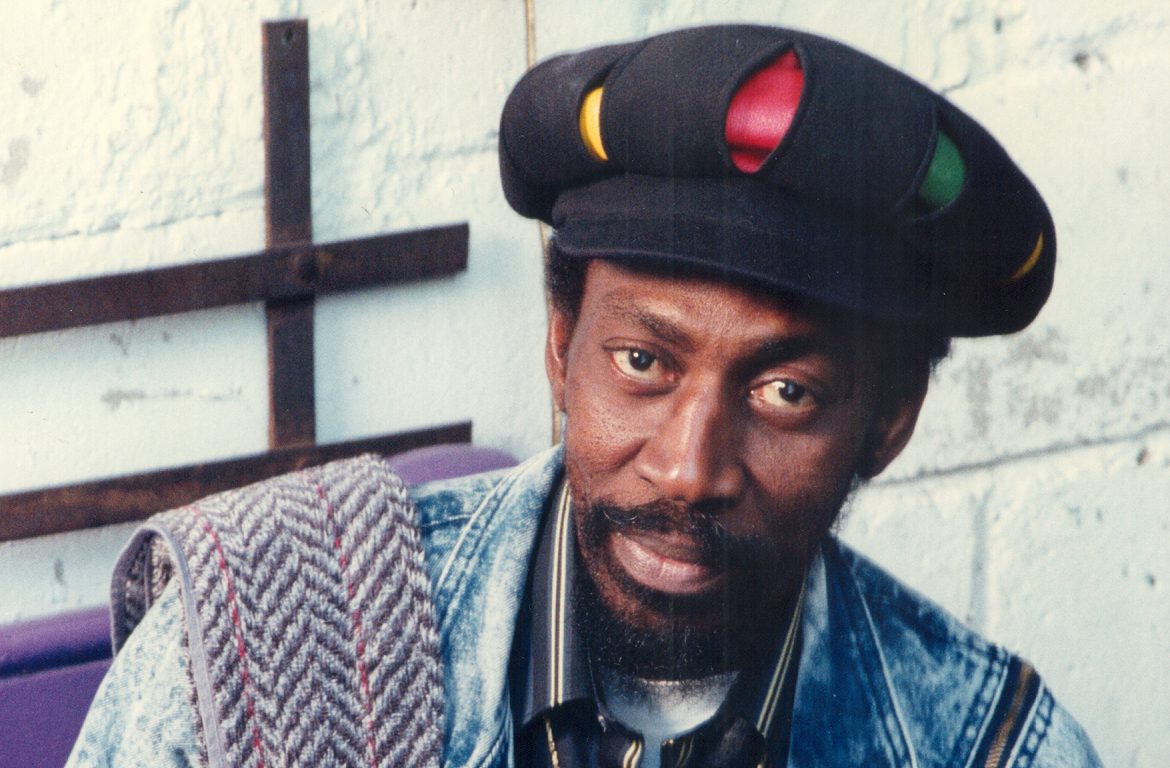Wailer’s manager, Maxine Stowe, confirmed his death

Bunny Wailer, circa 1990. Photo: Toronto Star/Getty Images
Bunny Wailer, a founding member of the Wailers and a reggae music giant whose career spanned seven decades, has died at the age of 73.
Wailer’s manager, Maxine Stowe, confirmed that Wailer died on Tuesday at the Medical Associates Hospital in Kingston, Jamaica (via the Jamaica Observer). No cause of death was given, but Wailer had been in and out of the hospital since suffering his second stroke, in 2020. A representative for the musician did not immediately respond to Rolling Stone‘s request for comment.
Wailer, born Neville Livingstone — before adopting his famous moniker, he was also known as Bunny Livingstone — was a member of the original Wailers trio with Bob Marley and Peter Tosh.
Born April 10th, 1947, in the Nine Mile district of Jamaica’s St. Ann Parish, Livingstone was a friend of Marley from a young age; following the death of Marley’s father, Norval, in 1955, Marley’s mother, Cedella, lived with Livingstone’s father, Thaddeus, in Trench Town, making Bunny and Bob near-stepbrothers.
While Marley and Livingstone were being mentored by Joe Higgs, “the Godfather of Reggae,” they met Higgs’ fellow student Peter Tosh; the then-trio ventured to Kingston. Soon after, they were joined by singer Junior Braithwaite and backup vocalists Beverley Kelso and Cherry Smith. Following a string of name changes that included the Teenagers and the Wailing Wailers, the Wailers aligned with Coxsone Dodd’s sound system and Studio One label — which employed songwriters and producers like Lee “Scratch” Perry and Jackie Mittoo — and released the Marley-penned “Simmer Down,” a Number One hit in Jamaica.
Braithwaite, Kelso, and Smith soon departed the Wailers, leaving the nucleus of Marley, Livingstone, and Tosh intact; that trio recorded the band’s debut LP, 1965’s The Wailing Wailers, a collection of tracks the band recorded during the mid-Sixties. The Wailers then went on hiatus as Marley married his wife Rita and joined his mother in Wilmington, Delaware; during this period, Livingstone served a yearlong sentence for marijuana possession. However, the three principle Wailers reunited upon Marley’s return to Jamaica.
While Marley and Tosh served as the Wailers’ primary singers and songwriters, Livingstone played an indispensable role in providing harmonies to the trio’s songs. The Wailers next teamed with Perry and his Upsetters for 1970’s Soul Rebels and 1971’s Soul Revolution; around that time, Livingstone wrote and recorded one of his signature songs, “Dreamland,” a track he revisited when he released his solo LP Blackheart Man in 1976.
A collection of Wailers songs the trio recorded for producer Leslie Kong’s Beverley’s label was released as Best of the Wailers in 1971. By then, thanks largely to the success of reggae acts like Toots and the Maytals and Jimmy Cliff, Jamaican music found an international audience, and the Wailers embarked on a U.K. tour with American reggae singer Johnny Nash.
In 1972, the Wailers signed with producer Chris Blackwell and his Island Records, resulting in their 1973 classic and major-label debut, Catch a Fire. Although the album and its similarly landmark follow-up, 1973’s Burnin’, helped propel the Wailers to international fame, following the release of Burnin’, both Tosh and Wailer left the group as Blackwell sought to diminish their roles and rebrand the Wailers as Marley’s backing group, as well as scheduling a tour of the U.S. that tested Tosh and Wailer’s strict Rastafarian faith. After resigning, Wailer was briefly replaced by Higgs when the Catch a Fire Tour did come to America in the spring of 1973. Catch a Fire was later ranked Number 126 on Rolling Stone’s 500 Greatest Albums list, with Burnin’ placing Number 319.
Following his exit from the Wailers, Livingstone — now known as Bunny Wailer — began work on his solo album Blackheart Man; while he took a backseat creatively in the Wailers, the LP allowed Wailer to establish himself as his own artist, with Wailer writing, producing, and singing lead on the entirety of Blackheart Man, which also featured contributions from Wailers band mainstays and reggae legends like Sly and Robbie and Aston “Family Man” Barrett. The album included songs like “Dreamland” and “Burning Down Sentence,” which was inspired by his prison stint.
“The tracks that were done in Blackheart Man were very symbolic and significant to this whole development of reggae music,” Wailer told Reggaeville in 2017. “I really consider Blackheart Man to be one of those albums that the universal reggae world should be focused on.”
Blackheart Man marked the beginning of a prolific and fruitful solo career for Wailer, who would win the Grammy for Best Reggae Album three times in the Nineties, for 1991’s Time Will Tell: A Tribute to Bob Marley, 1995’s Crucial! Roots Classics, and the 1997’s all-star Hall of Fame: A Tribute to Bob Marley’s 50th Anniversary.
Reflecting on his career in 2016, Wailer told Afropop, “The Wailers are responsible for the Wailers sound. Bob, Peter, and myself: We are totally responsible for the Wailers sound, and what the Wailers brought to the world, and left as a legacy.”
The hip-hop artist reflects on his 2024 journey, including his performance in India, acting projects,…
‘Happiness’ highlights why K-zombies matter. It questions what differentiates humanity and monstrosity and what 'happiness'…
"It's not my moment, it’s her moment," the actor told Men's Health
The grime star pleaded guilty to the charge and was also fined about $2,400
Documentary on the embattled music mogul will premiere later this month on Peacock
"I’m honored to contribute to this legacy doing what I love most, rap," Fiasco wrote